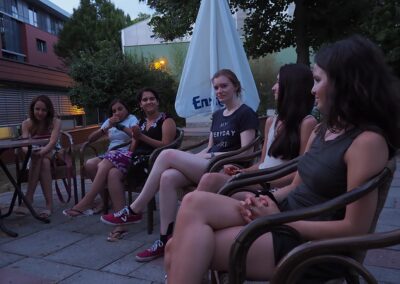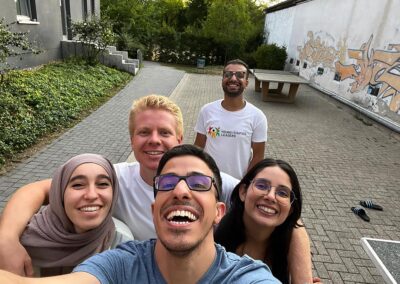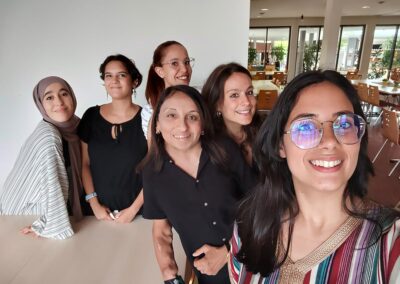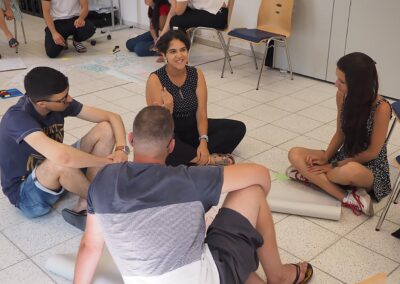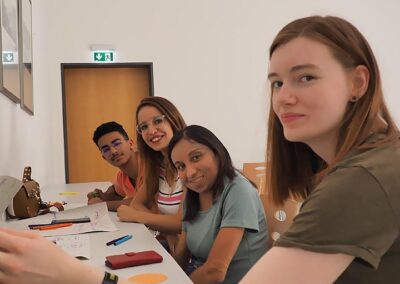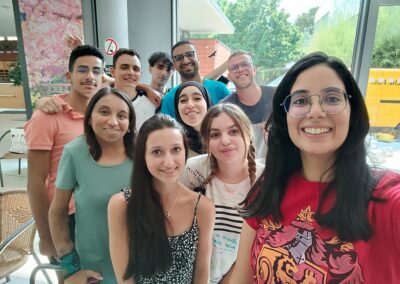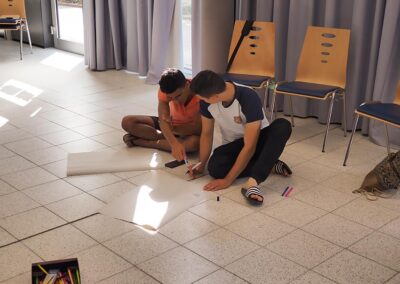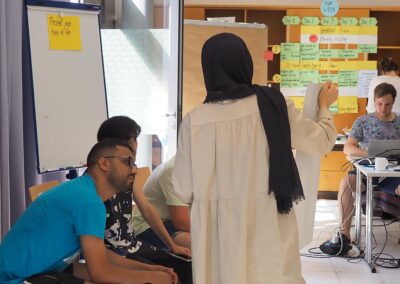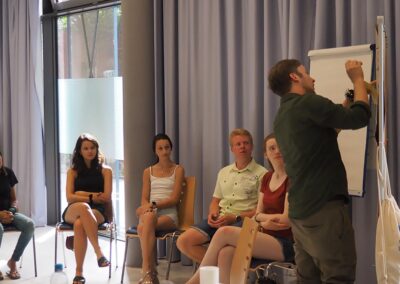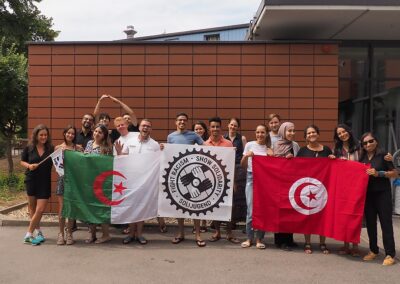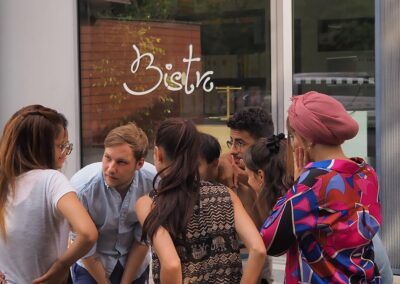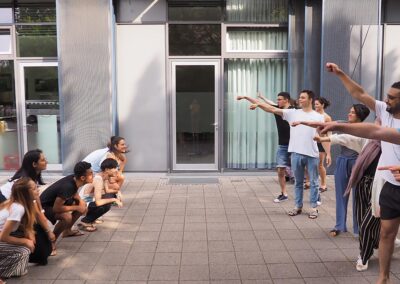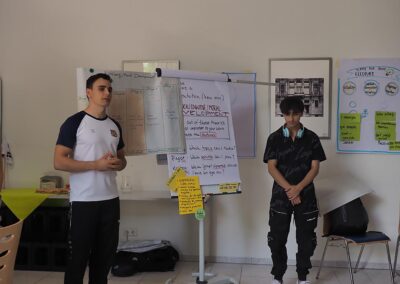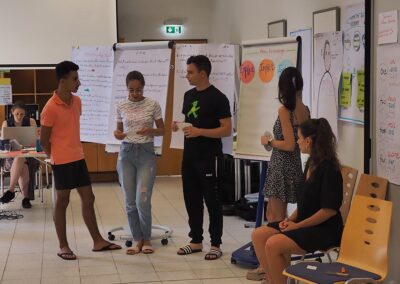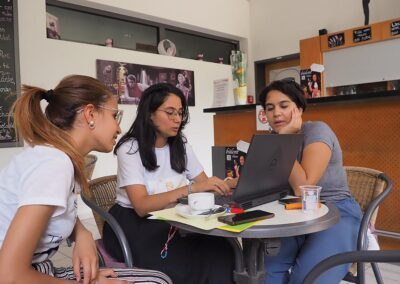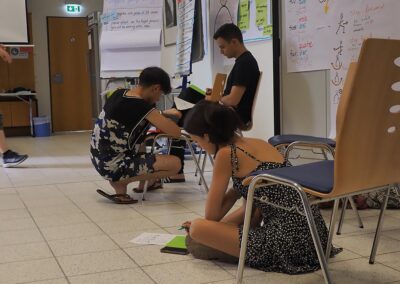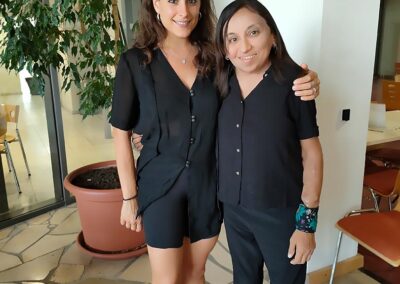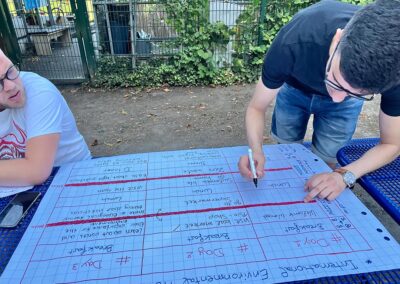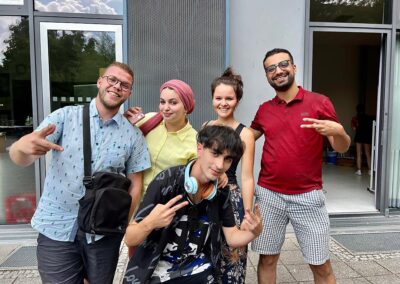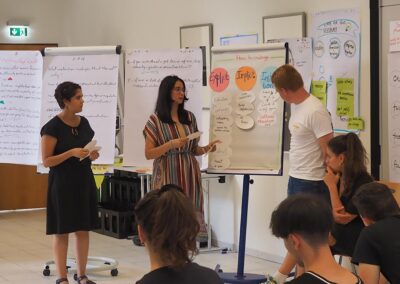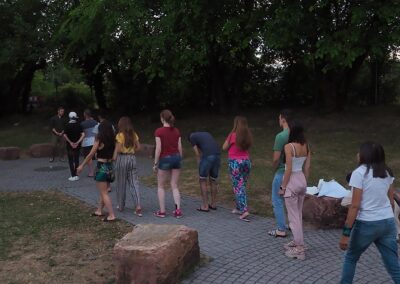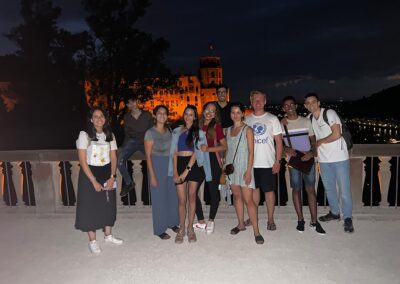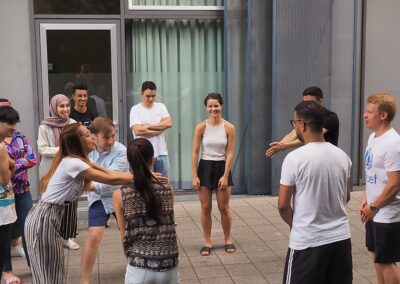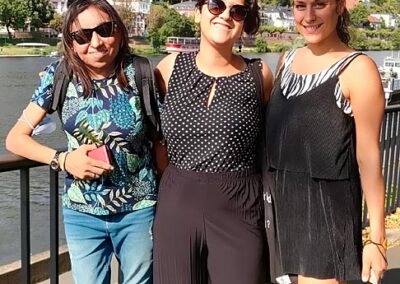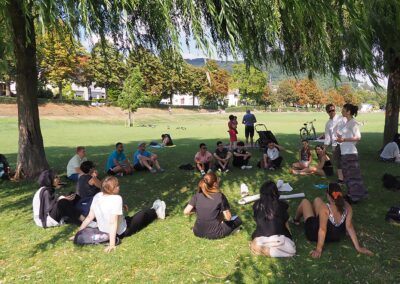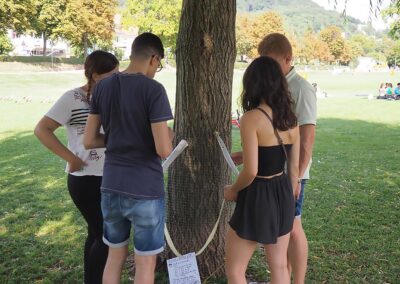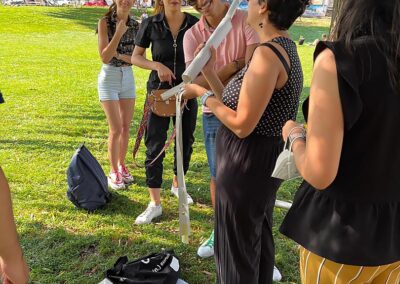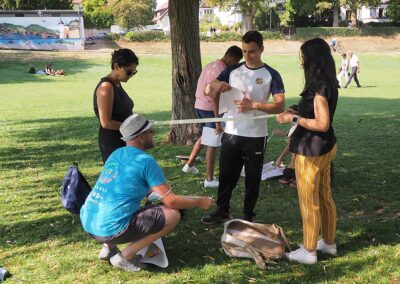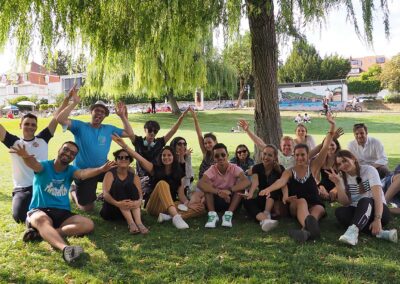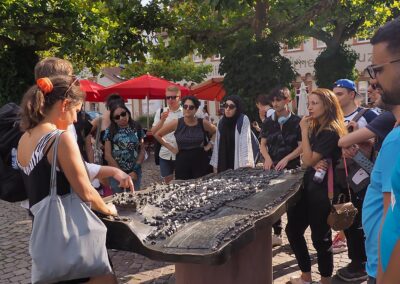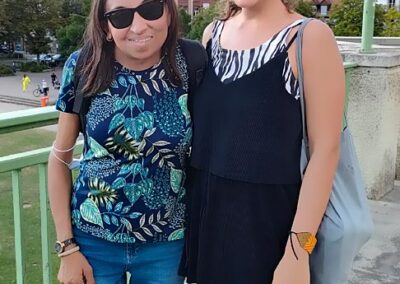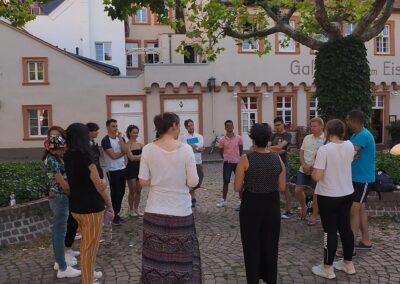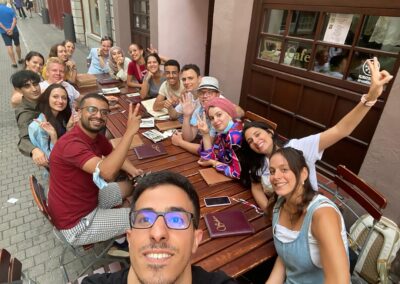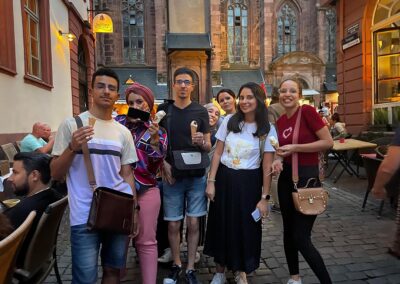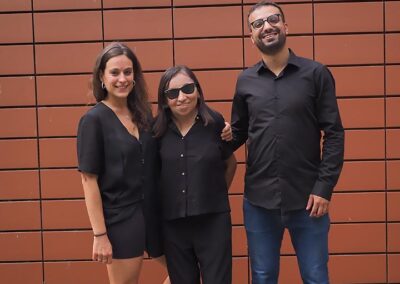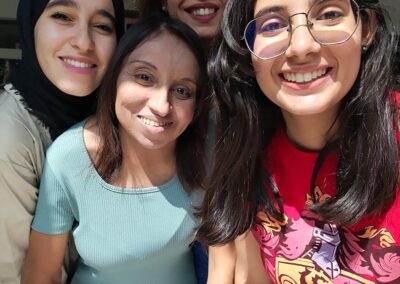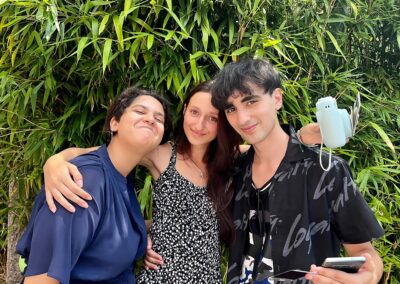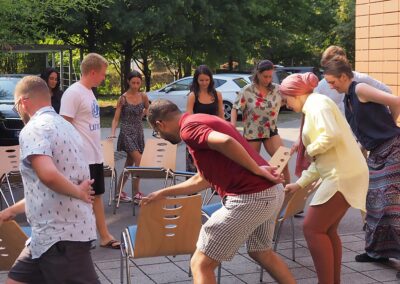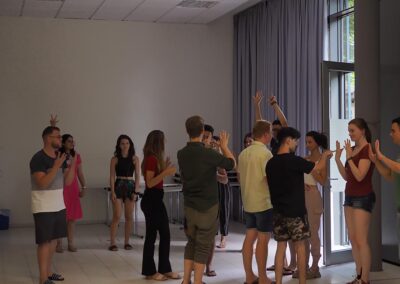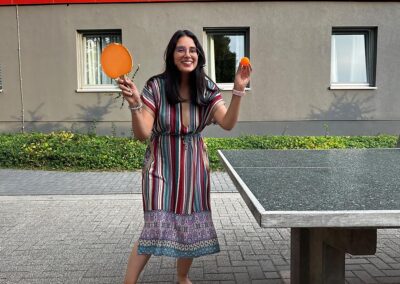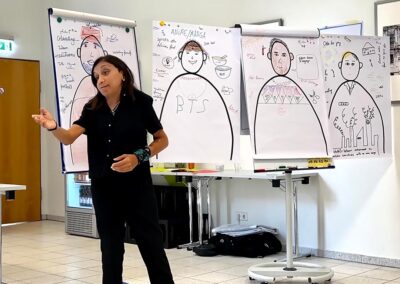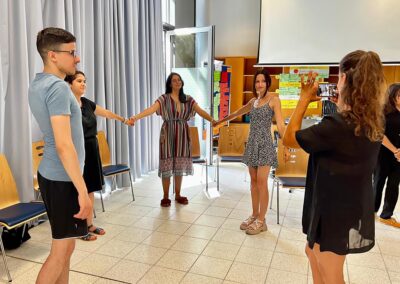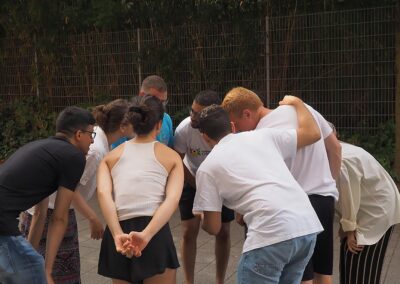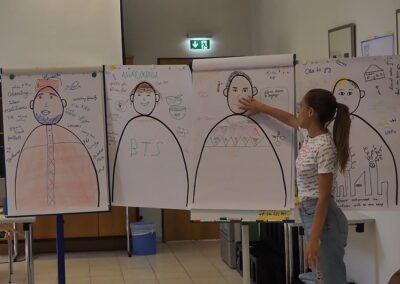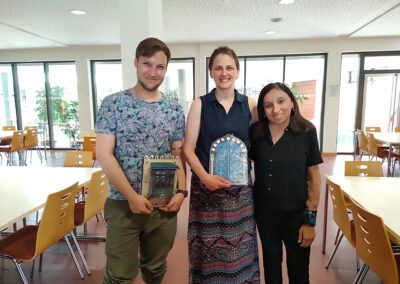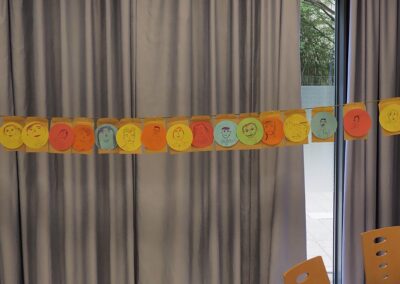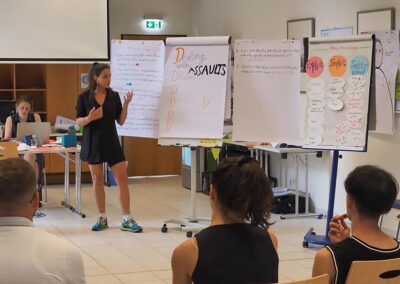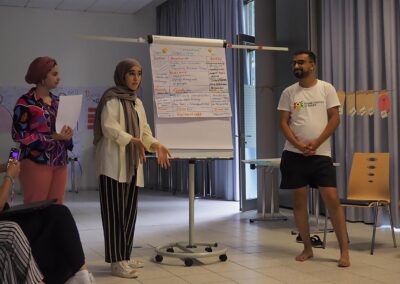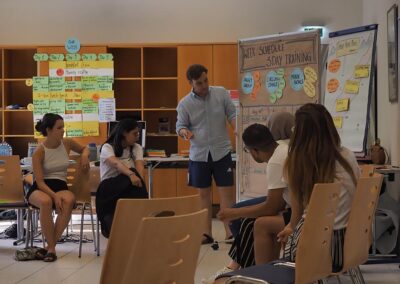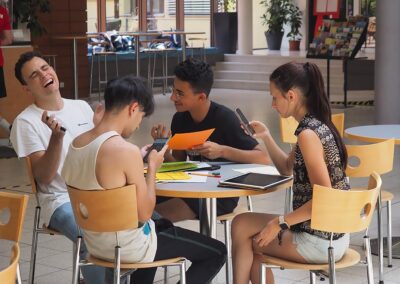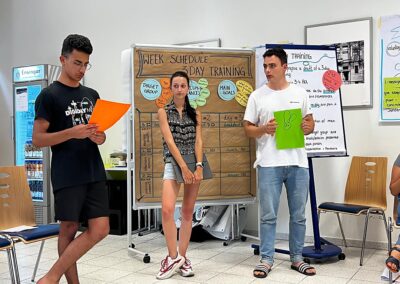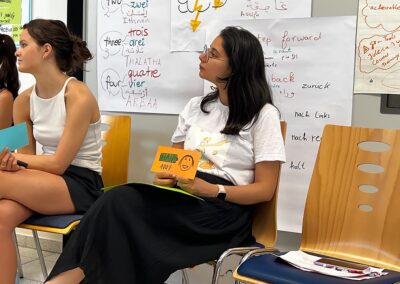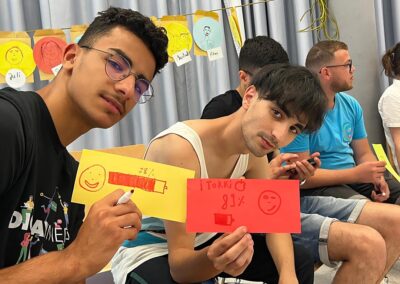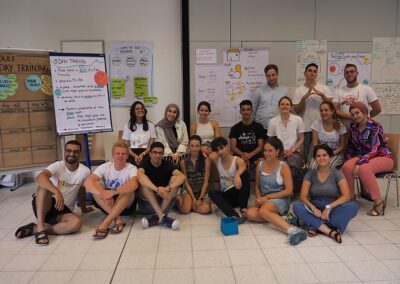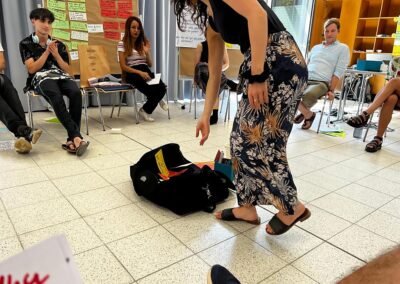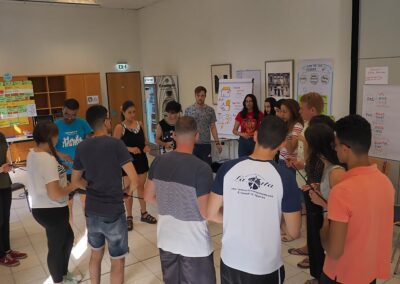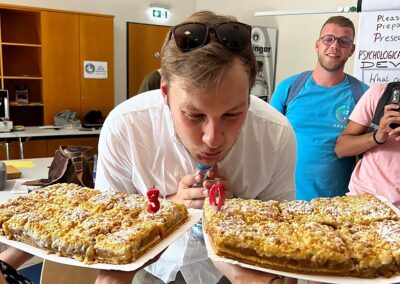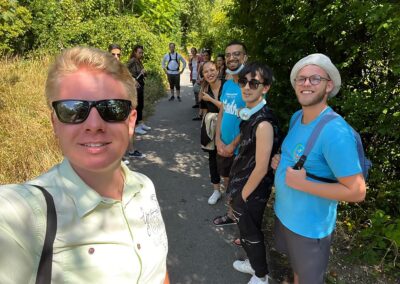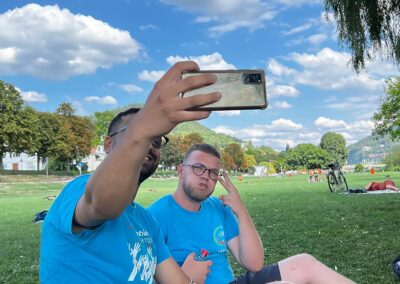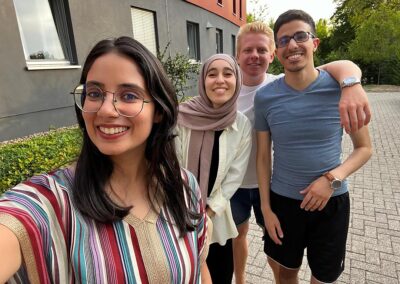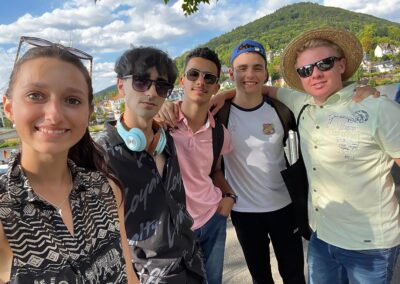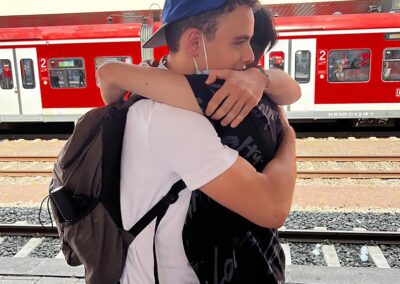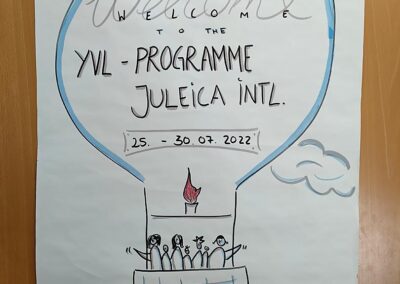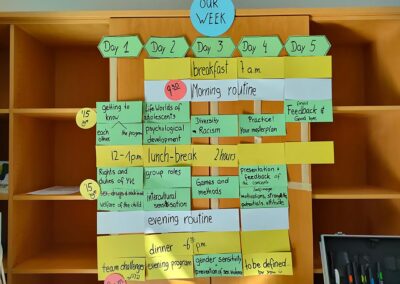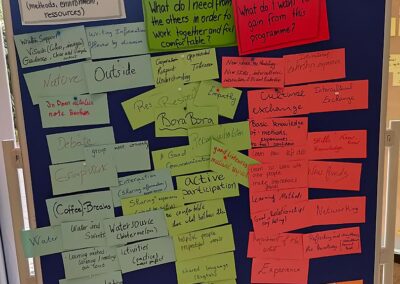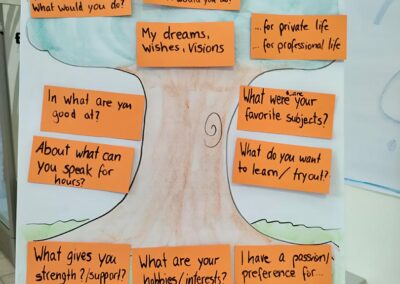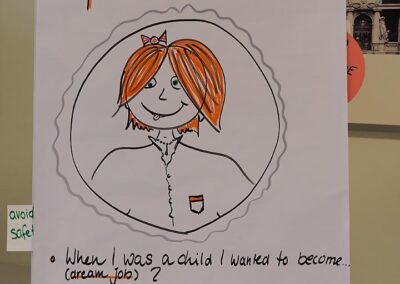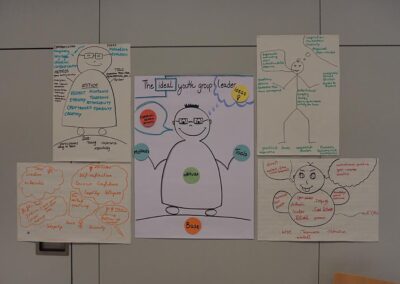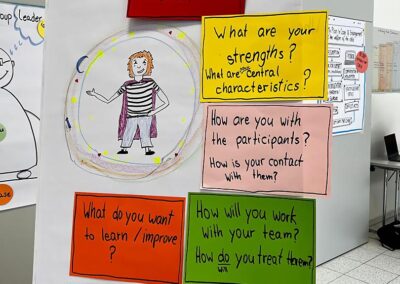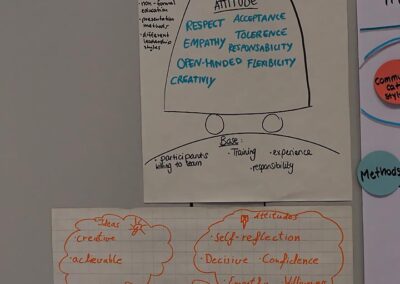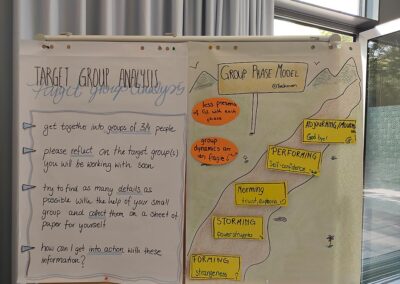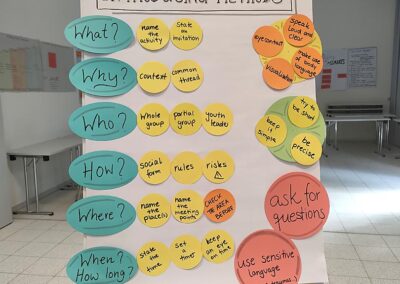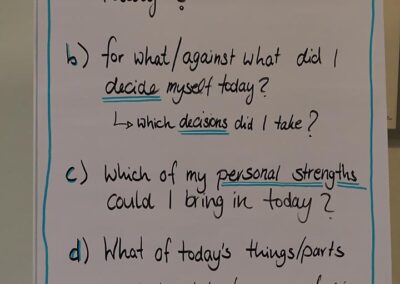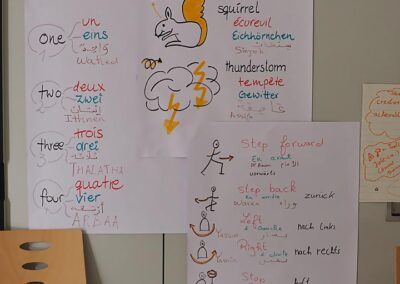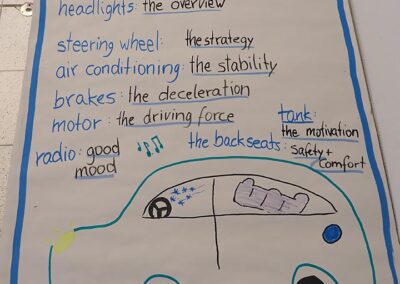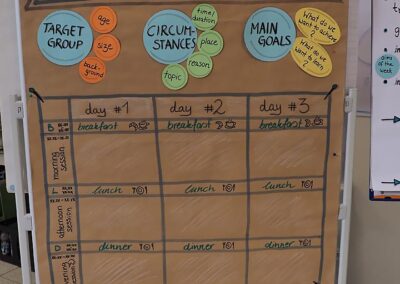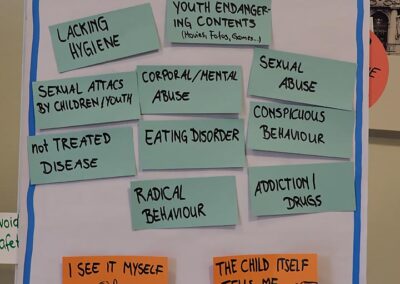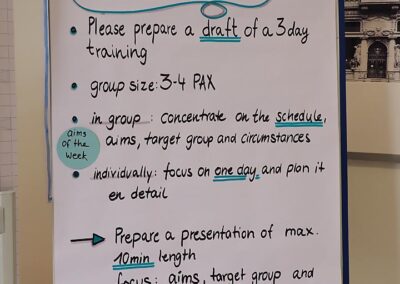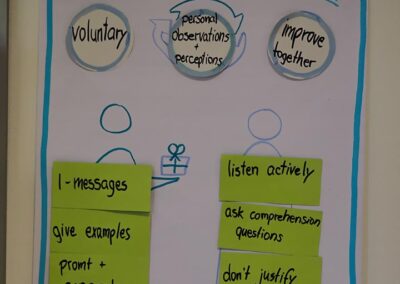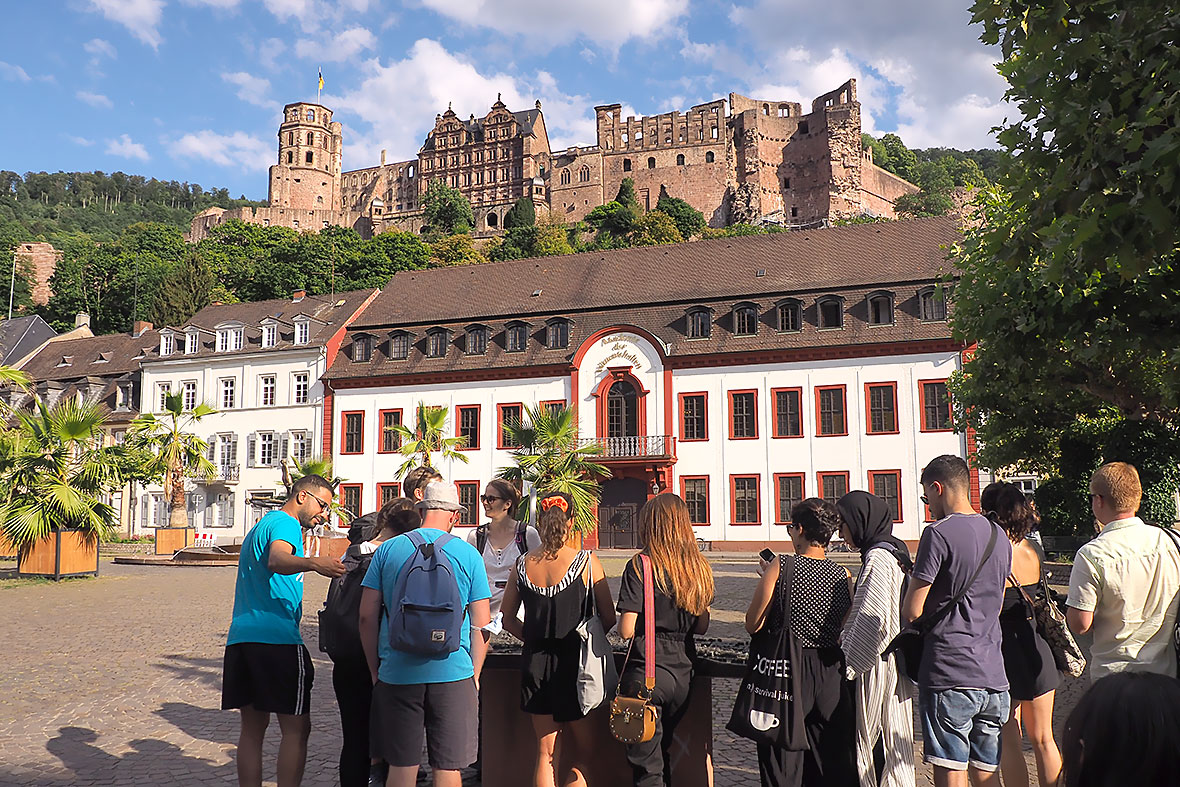
International meeting in Heidelberg
The international “Young Verified Leaders” youth leader training took place from 25. 07. 2022 to 30. 07. 2022 in Heidelberg. Five participants from Germany, five from Tunisia and three from Algeria were involved. The coordination team consisted of Haifa Ghardi, Nassim Medjir and Adeline Haaby, each responsible for the organizations “We love Sousse” from Tunisia, “ADEEJ” from Algeria and the “Solidaritätsjugend Deutschlands”. In addition, two trainers, Klaas Opitz and Juliane Uhlig, led the international Juleica training in English. Firas Hakiri was responsible for the language mediation from English into French, Arabic or German.
The entire team regrets very much that the “Young Verified Leaders” could not meet entirely in Heidelberg. In fact, the second participating organization from Algeria – “ALEJ”, represented by Nasser Belkacem and three other Algerian participants – were not granted visas for Germany. Despite many attempts with the German embassy in Algeria, participants who have been participating in the project for more than 10 months, were not allowed to fly to Germany. The non-issuance of the visas was detrimental to the full achievement of the project goals. This would only have been possible if all participants had met on site.
The following contents were imparted by the two trainers to the required extent: Rights and duties of Young Verified Leaders, Welfare of the child, Life worlds of adolescents, Psychological development, Group roles, Intercultural sensitization, Diversity and Racism, Games and methods, Gender sensitivity, Practice your masterplan, Presentation and feedback of the concepts, Self-image: motivations, strengths, potentials, and attitude.
In addition, the participants were given tools on various methods, among others: Morning and evening routine, Getting to know each other and the program, Team challenges and feedback, Self-reflection techniques.
Regardless of the challenging and innovative program, this accelerated training of more than forty hours in five days gave members the opportunity to finally get to know each other face to face. What was striking was how quickly they were able to build mutual trust and overcome their initial reluctance. This was achieved thanks to the diligent work that had been done in advance, the six previous online workshops and the intensive preparation for the training in Heidelberg. This assessment was also confirmed by the trainers Juliane Uhlig and Klaas Opitz, who answered the question “What challenges did you face in interacting with the participants?” as follows: “This group was an international and mixed group that had already been working together online for 10 months. So in proportions, the group already knew each other. The challenge for the seminar leaders was to break up the partial integration of the participants in the national groups, to expand it and to enable them to come together as a whole group with negotiation processes to go through. […] The participants quickly showed a lively interest in each other and met with openness and appreciation. They also spent a lot of time together outside the seminar times, during breaks and in the evenings. The space offered for exchange and further acquaintance was readily accepted and used. The challenge of dealing with prejudices (especially nationalistic ones) as well as with influences of post- or neo-colonial, sexist and racist structures and power asymmetries did not lead to any difficulties for the seminar leaders. Power asymmetries were addressed and there were no perceptible sustainable tensions, although there were pedagogically-intended as well as unconscious reproductions of those structures in the seminar.”
One of the last activities of the training in Heidelberg was to design a three-day camp. Convening the knowledge gained during the first four days of training, the participants had to define in detail a specific program in terms of target (age, group size, knowledge), objectives (what the participants want to learn and have to achieve in the program) and circumstances (program topic, time and place). According to Khouloud, this last activity was undoubtedly one of the highlights of the training: “The highlight of the week in Heidelberg, for me, was working on the idea of a camp. This activity represented the conclusion of the five days as we tried to integrate the information we learned to work on a complete project with all the necessary details.”
According to Khouloud, and the majority of the participants, the training in Heidelberg within the “Young Verified Leaders” program was their first trip abroad within the framework of an international training: “I remember most of the group works even if with time some details might be forgotten and the information learned somehow needs to be refreshed by skimming through notes. However, I could never forget the feelings we had, especially on the first day: we were still strangers with all our differences but we quickly learned to live together, to share our experiences and the details of our lives. I particularly remember the moments when I had to deal with conflicts and leave my comfort zone. In the end, I think what you really take away is never information or definitions: the real discovery is getting to know yourself and knowing the other person.”
After the days in Heidelberg, it went directly to Giengen an der Brenz in the east of Baden-Württemberg, where the 58th youth meetings organized by the Solijugend took place from July 30 to August 7. As the last measure of the program, the German, Algerian and Tunisian delegations will meet in Algeria in Algiers in December 2022.
